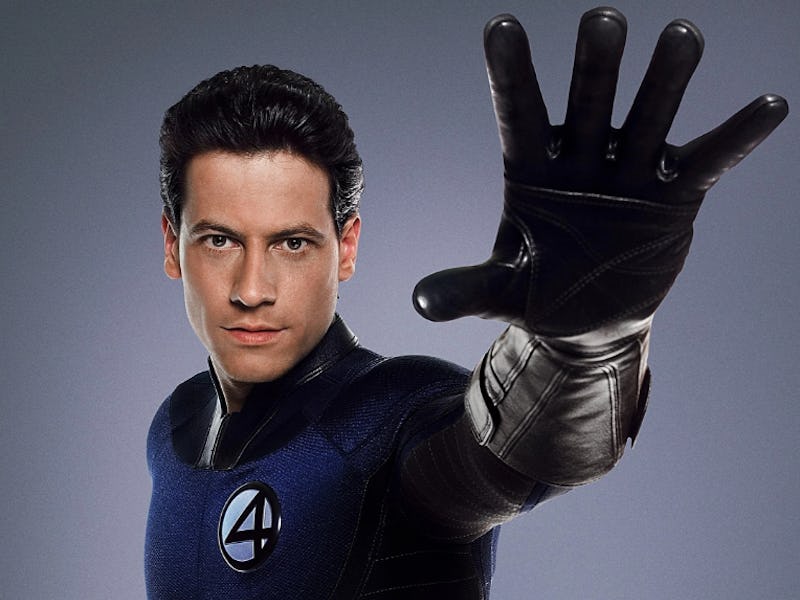15 years ago, Fox made the best Fantastic Four movie ever — it still stunk
The last gasp for pre-MCU superhero movies is better than you remember.

What do Dolph Lundgren’s The Punisher, forgotten TV movie Generation X, and ’80s box office flop Red Sonja all have in common? They’re the only films based on a Marvel Comics property that run shorter than Fantastic Four: Rise of the Silver Surfer.
The second and final 20th Century Fox outing for the mid-‘00s version of Marvel’s “First Family” may be regarded by some as the nadir of the modern superhero era, but it boasted a superpower the genre has largely struggled to acquire ever since: brevity. And we’re not just talking about its refreshingly slim 92-minute running time, either.
After all, Silver Surfer’s equally-maligned 2005 predecessor was only 15 minutes longer, yet it felt like much more of a slog, crammed as it was with unsubtle exposition and a dreary love story that unwisely stole focus from all the world-saving exploits. Even Chris Evans, one of the original’s few saving graces, appeared to acknowledge the movie’s shortcomings, telling Entertainment Weekly the franchise starter “was handicapped because it was an origin film.”
Director Tim Story, who perhaps surprisingly was tapped to return for the sequel, agreed with Evans, promising in the same EW article that the follow-up would be far more action-oriented. He wasn’t kidding. The Marvel logo has barely stopped flashing when the titular villain (voiced by Laurence Fishburne, embodied through motion capture by Doug Jones) first rides into view, freezing the ocean, coating the Pyramids in snow, and plunging New York into darkness.
The titular cosmos roamer.
The Silver Surfer, a humanoid acting on behalf of a malevolent world-devouring entity named Galactus, undoubtedly makes for a much more pressing and more effective nemesis than the first film’s Dr. Doom (Julian McMahon). Earth is just another planet to tick off his destruction hit list, and the ease with which he initially brushes off the gang’s attacks proves it will take more than a thermal shock to thwart him.
To be fair, the returning Doom is much more potent the second time around, having been inadvertently revived by the Surfer’s cosmic energy. He even manages to snuff out one of the Four, spearing Sue Storm (Jessica Alba) in the chest during the climactic showdown. Of course, this being a family-friendly blockbuster, the Invisible Woman is brought back to life within seconds.
Johnny Storm (Chris Evans) and Thing (Michael Chiklis) swap powers.
The narrative is propelled forward just as quickly elsewhere. Reed Richards (Ioan Gruffudd) somehow manages to build the Surfer-detecting sensor requested by the U.S. military on the same weekend he’s getting married, for example. “Can we skip to the end,” the genius physicist asks during the ceremony as the Surfer gets ready to wreak more havoc. Screenwriters Don Payne and Mark Frost seem to be in a similar hurry.
That’s sometimes to the film’s detriment. The scenes in which Johnny Storm, fresh from a deep space confrontation with the Surfer which has altered his molecular structure, swaps powers with his fellow heroes are ripe for comic potential. Yet we only get to see Evans as a sentient pile of orange rocks, à la The Thing, for a matter of seconds before order is restored.
However, for the most part, the sequel’s sense of urgency works in its favor. Sure, the climax succumbs to one of the genre’s most tiresome cliches, but it at least recognizes a little city-destructing CGI can go a long way. The Fantastic Four have always been among the most lightweight members of Marvel’s extended family, and by getting from A to B without any long-winded speeches, ponderous prologues, or subtextual aspirations, Silver Surfer is far more in keeping with its source material’s Saturday morning TV vibes than the needlessly gritty 2015 reboot that followed.
Mr. Fantastic (Ioan Gruffudd) and The Invisible Woman (Jessica Alba) in everyday form.
But despite posting a bigger opening weekend, Rise of the Silver Surfer ended up grossing $30 million less than the original — and, perhaps more notably, only a third of 2007’s reigning tentpole, a far more overstuffed Marvel adaptation. Indeed, audiences were more than happy to sit through the butt-numbing 139 minutes of superfluous villains and sluggish romantic subplots that closed Sam Raimi’s Spider-Man 3 trilogy. Within a year, Iron Man had opened up a cinematic universe that would make such grandeur the norm. And by 2009, superhero films were entering the Oscars race. A wholesome cartoonish caper that reveled in good-versus-bad simplicity suddenly looked like it belonged to a different era.
Little wonder, therefore, that a proposed third Fantastic Four film, championed by the cast (unexpectedly, in Alba’s case), never got off the ground. The same goes for the Silver Surfer spin-off teased by its mid-credits scene, in which the metallic-skinned cosmos roamer and his beloved board reunite.
It seems unlikely that we’ve been robbed of a classic. With Story attached once again to the project, FF3 would no doubt have offered a similar blend of corny quips, wafer-thin characterization, and generic set-pieces. But at least it probably wouldn’t have overstayed its welcome — unlike so much of the bloated superhero fare that’s followed.